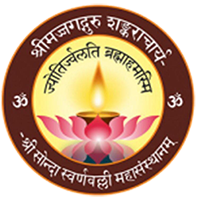- UPSC:
- KPSC
- Banking and PSU Exams
- Other Competitive Exams
- Scheme for Examination
- Subjects
- Syllabus
- Question Paper
- Standard Books to Start
- Where to look for Current Affairs
- Interview Guide,
- Optional Subject Support
- Suggested Reading: NCERT
UPSC:
The UPSC Civil Services Examination (CSE) is one of the most prestigious and competitive examinations in India, conducted by the Union Public Service Commission (UPSC) to recruit officers for All India Services and Central Civil Services, including the Indian Administrative Service (IAS), Indian Police Service (IPS), Indian Foreign Service (IFS), and others.
Preliminary Examination (Prelims) – Objective Type
- Purpose: Screening test only. Marks are not counted for the final ranking.
- Papers:
- Paper I: General Studies (GS) – 200 marks
(Current events, history, polity, economy, environment, etc.) - Paper II: CSAT – 200 marks
(Comprehension, reasoning, basic numeracy – qualifying with 33% minimum)
- Paper I: General Studies (GS) – 200 marks
- · Total Marks: 400
- · Mode: Offline
- · Negative marking: 1/3rd of marks deducted for incorrect answers
Main Examination (Mains) – Descriptive Type
- Purpose: To assess academic knowledge, writing skills, and depth of understanding
- Papers: 9 Papers in total
- Qualifying Papers:
- Paper A: Indian Language – 300 marks (not required for candidates from northeastern states)
- Paper B: English – 300 marks
- Papers Counted for Merit:
- Essay – 250 marks
- General Studies I – 250 marks (Indian Heritage, History, Geography)
- General Studies II – 250 marks (Governance, Polity, Constitution)
- General Studies III – 250 marks (Economy, Environment, Security)
- General Studies IV – 250 marks (Ethics, Integrity, Aptitude)
- Optional Subject Paper I – 250 marks
- Optional Subject Paper II – 250 marks
- Qualifying Papers:
- Total Marks for Merit: 1750
Personality Test (Interview)
- Purpose: To assess mental alertness, critical thinking, leadership, and communication
- Conducted by: UPSC Board
- Marks: 275
- Total Final Marks (Mains + Interview): 2025
Eligibility Criteria
- Nationality: Indian citizen for IAS/IPS; other services allow certain other categories
- Age Limit:
- General: 21 to 32 years
- OBC: up to 35 years
- SC/ST: up to 37 years
- Educational Qualification: Graduate degree in any discipline
- Number of Attempts:
- General: 6
- OBC: 9
- SC/ST: Unlimited (till age limit)
|
Stage |
Month(Approx) |
|---|---|
|
Notification |
Jan/ February |
|
Prelims |
May/June |
|
Mains |
September/October |
|
Interview |
February–April (next year) |
|
Final Result |
April/May (next year) |
KPSC
KPSC, or the Karnataka Public Service Commission, conducts various exams for recruitment to different government posts in Karnataka, including the Karnataka Administrative Service (KAS) exam. The KAS exam, also known as the Gazetted Probationers Exam, is a three-stage process involving prelims, mains, and an interview.


Preliminary Examination (Screening Test)
- Objective Type (Multiple Choice Questions)
- Papers:
- Paper I – General Studies – 100 questions – 200 marks
- Paper II – General Aptitude – 100 questions – 200 marks
- Total: 400 marks
- Duration: 2 hours per paper
- Negative Marking: Yes (0.25 marks per wrong answer)
Banking exams, like the State Bank of India (SBI) exams (SBI PO, SBI SO, SBI Clerk) and the Institute of Banking Personnel Selection (IBPS) exams (IBPS PO, IBPS SO, IBPS Clerk, IBPS RRB), are For bank Administartion.
Banking exams focus on quantitative aptitude, reasoning, and banking knowledge, while State PSC exams assess general knowledge, current affairs, and specific subject-related knowledge for state-level civil service positions.
STANDARD BOOKS TO START:
NCERT Books (Class 6–12) – For History, Geography, Economics, Polity, Science
(Start with Class 9–12 if short on time)
PIB / PRS India / Yojana / Kurukshetra – For governance and schemes
India Year Book
1. History
📚 Ancient & Medieval History
- NCERT Class 11 – Ancient India (R.S. Sharma)
- NCERT Class 11 – Medieval India (Satish Chandra)
📚 Modern History
- India's Struggle for Independence – Bipan Chandra
- NCERT Class 12 – Modern India
📚 Art & Culture
- An Introduction to Indian Art – NCERT Class 11
- Indian Art and Culture – Nitin Singhania
2. Geography
- NCERT Class 11 & 12 – Fundamentals of Physical & Human Geography
- Certificate Physical and Human Geography – G.C. Leong
- Oxford School Atlas – for map-based questions
3. Polity
- Indian Polity – M. Laxmikanth
- NCERT Class 11 & 12 – Political Science
4. Economy
- Indian Economy – Ramesh Singh (Conceptual clarity)
- NCERT Class 11 & 12 – Economics
- Economic Survey (latest)
- Budget Highlights – from PIB or Ministry of Finance website
5. Environment & Ecology
- Shankar IAS Environment Book
- NCERT Biology Class 12 (Selected chapters)
6. Science & Technology
- NCERTs Class 6–10 – General Science
- Current Affairs (PIB, Science Reporter, The Hindu)
7. Ethics, Integrity & Aptitude (GS Paper IV)
- Lexicon for Ethics, Integrity & Aptitude – Niraj Kumar / Chronicle Publications
- 2nd ARC Report (Selected Chapters)
- Case Study Workbook – by any reputed coaching
8. CSAT (Prelims Paper II)
- CSAT Manual – Tata McGraw Hill / Arihant
- Previous Years’ UPSC CSAT Papers

